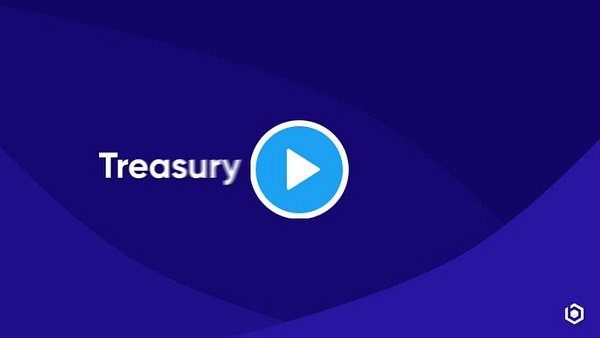This Week in DAOs - June 10, 2021
Boardroom Launches Treasury Integration, Uniswap Proposal #4 Passes, and Gitcoin's AKITA Debate Rolls On
Hot DAO summer is heating up. Keep scrolling to get caught up on this week’s DAO news.
If you want to get involved in Stateless - a community-driven resource covering digital and distributed organizations and their governance - or are interested in learning more about Boardroom, reply here or join our Discord. We’d love to hear from you.
By the way, in case you missed it, check out the Stateless podcast episode from earlier this week:
🎙️ Stateless #6 - Governance 2.0 and Yearn with Tracheopteryx
📰 This Week’s News
Boardroom Launches Treasury Integration
First, a shameless plug. We’re excited to announce our newest Boardroom product feature: an integration with MultiSafe that allows users to review treasury balances, activity, and payment details directly on a project's page in the Boardroom Portal.


Check it out on the Boardroom governance portal - app.boardroom.info - by navigating to a claimed project.
Treasury management and payroll distributions are two of the most common types of decisions that DAO members make. Now, stakeholders - both internal and external to the DAO - can easily keep track of information related to those decisions, including treasury balances, disbursements, and recipients of funds.
Some initial integrations include Compound Grants, Bankless DAO, and Synthetix DAO.
If you’re interested in learning how to activate this feature for your project, follow these instructions in the Boardroom Docs.
Uniswap Proposal #4 Passes
Last week we talked about how busy Uniswap governance has been in recent weeks. And while the hoopla around the DeFi political defense initiative is ongoing, an official Uniswap governance proposal was passed lowering the proposal submission threshold (the amount of UNI that needs to be staked to an address making a governance proposal) from 10 million UNI to 2.5 million.
Uniswap governance was already heating up but this proposal adds fuel to the proverbial fire, making it much easier for governance proposals to be made by members of the community.
Perhaps we’ll see further adjustments to their governance process to account for the recent changes…

Index Coop at the Forefront
Let’s take a minute to recognize Index Coop as the leader in the DAO space that it is. Here are a few examples:
DAO-to-DAO Business
The final vote to move forward with the proposed Bankless BED Index is live (vote here on Boardroom if you’re an Index holder). The BED Index would capture “equal-weighted upside from the most promising use cases and candidates around the theme of blockchain as a generationally disruptive technology: store of value, programmable money, and decentralized finance.”
Besides the product itself, however, this proposal is significant given Bankless DAO’s recent launch. This is a great example of positive-sum D2D business development that Arjun references in the tweet above.
Evolving Governance Practices
The Index community has voted to delegate authority over their flexible leverage index products to a group of experts in light of price dislocations resulting from failed governance votes.
Specifically, the recently passed proposal allows “subject matter experts to manage FLI products in a more frictionless way and to allow more rapid, responsive changes to product parameters.”
This is a great example of iterating on governance processes in favor of greater efficiency - a tradeoff that is discussed in our latest Stateless podcast episode and a story that we’re bound to see repeat itself in a variety of contexts.
Hiring and Education
Index has proposed the creation of an internship program to train the next generation of talent in DAOs. This is a first of its kind proposal to create sponsored DAO internships. According to the forum post/proposal, the program will start in July and run for 6 weeks:
“During their internship, students will work directly with a working group lead to develop their understanding of their inner workings of the Index Coop… By the end of their internship, we will have equipped our interns with the context and skill to hit the ground running and transition into a regular contributor role.”
Kudos to the Index community!
Gitcoin’s AKITA Debate Continues
Last week, we covered GitcoinDAO’s debate about what to do with its massive amount of Akita tokens, originally donated by Vitalik Buterin.
The nonbinding Snapshot vote giving $GTC holders the choice to vote on 7 proposals on how to proceed concluded on June 5th. Two proposals emerged as the clear “winners,” earning 48% and 36% of the vote respectively:
Liquidate 100% of the Akita tokens for ETH
Sell 10% of the tokens and place the other 90% in a Sablier contract unlocked over 2 years.
The crux of the debate here is how to get the most value out of the tokens given that Akita has low levels of liquidity in the market. Though there are a few voices from the Akita community urging GitcoinDAO to have mercy on their token price, the main focus for the GitcoinDAO community is (understandably) self-interested: how to get rid of the tokens while maximizing the value accrued to their treasury.
To that end, another proposal has entered the fray. Alex Van De Sande from Balancer Labs proposed setting up a Balancer schedule-based pool - a tool usually used to bootstrap liquidity for new tokens - that would effectively “dollar cost average” the Akita into ETH (or some other token) over a set time period, programmatically increasing the ratio of the other token to Akita in the pool.
For now, exactly how the Gitcoin community’s desire to exit its Akita position is still being worked out. Keep an eye on this thread to stay up to date.
Stateless by Boardroom is a community-driven resource covering digital and distributed organizations and their governance. If you’re interested in contributing to Stateless, reply here or reach out to us on the Boardroom Discord.




